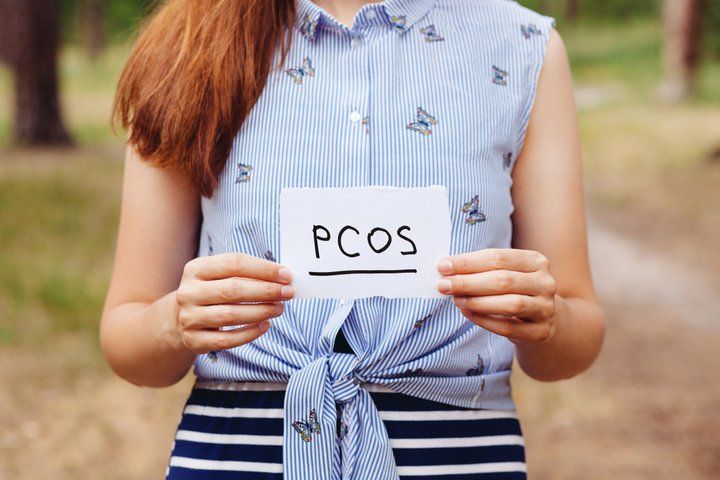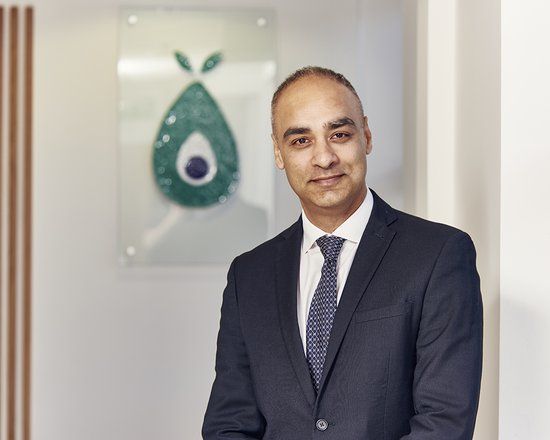
PCOS – or Polycystic Ovarian Syndrome – is a hormonal condition that many women encounter. It’s more common than you might think, affecting roughly 1 in 10 women in the UK and a reason why many people visit our clinic.
Since September is PCOS Awareness Month, we’re here with an informative guide to help you understand the condition, explore its impact on fertility and discover the treatment options available to help give you the best chance of starting a family.
What is PCOS?
PCOS is a condition that causes an imbalance in your reproductive hormones, which can influence how your ovaries function. The ovaries produce an abnormal number of androgens, or male sex hormones, usually only found in small quantities in women.
As the name suggests, this hormone imbalance can cause tiny cysts to grow on or in the ovaries. It's worth noting that some women who experience hormone imbalance might not have cysts, while some women can develop cysts but not have a hormone imbalance.
Symptoms can vary significantly from person to person, but may include irregular menstruation, difficulty getting pregnant, excess hair growth, oily skin and mood changes.
Why does PCOS cause fertility problems?
Because PCOS affects how your ovaries work, it can make it harder to get pregnant. Due to the hormonal imbalance, the eggs fail to mature and don't undergo the regular release process. This is why women with PCOS don't ovulate regularly or at all. However, the good news is that having PCOS doesn't mean you can't have a baby.
Do I need fertility treatment if I have PCOS?
Many women with PCOS do achieve natural pregnancies, although it might take a bit longer due to irregular ovulation patterns.
Some women with PCOS may be able to conceive by making lifestyle adjustments, such as reducing BMI to within a healthy level, tracking cycles when ovulation occurs and using at-home ovulation prediction kits.
In some cases, women will need the help of fertility treatment in order to conceive. It all depends on the extent of your PCOS and how it influences your reproductive and general health.
How are PCOS patients assessed for fertility treatment?
At Manchester Fertility, we specialise in providing expert fertility treatment for women with PCOS. Our doctors understand the condition's unique complexities and are dedicated to tailoring treatments to meet your specific needs.
Our approach begins by creating an accurate picture of your reproductive health. We perform a comprehensive set of initial fertility tests, which includes a pelvic ultrasound examination.
During the examination, we aim to understand how your body might respond to ovarian stimulation, determine the correct levels of fertility hormones you’ll require, and decide on the best treatment plan that fits your overall needs.
Personalised treatment is crucial for women with PCOS due to an increased risk of Ovarian Hyperstimulation Syndrome (OHSS). This occurs when the ovaries over-respond to fertility medications and produce too many mature eggs.
Before treatment, we also recommend reducing your BMI, as a high BMI can lower the chances of successful treatment. We have many consultants who specialise in treating PCOS and can provide support in helping achieve the optimum BMI for treatment. Alternatively, you can speak to your GP.
What fertility treatments can help with PCOS?
At Manchester Fertility, IVF, or in-vitro fertilisation, stands out as an exceptionally effective choice for women with PCOS, consistently delivering outstanding outcomes.
The initial phase of IVF involves self-administering fertility medications to safely stimulate the production of an adequate number of eggs. Our dedicated team provides comprehensive instructions to guide you through this process.
After eggs are collected, they are fertilised using partner or donor sperm, and the best-resulting embryo is transferred to your uterus for pregnancy. Any remaining good-quality embryos can be frozen for future use if additional cycles are needed.
If you're contemplating IVF treatment, explore our comprehensive guide, filled with all the essential considerations you should keep in mind.
Our experts
Manchester Fertility is home to a team of leading doctors who have a special interest in PCOS and can help patients experiencing this condition. You can meet our whole team here or check out some of our individual consultants below:
Dr Raj Mathur
Dr Raj Mathur is our Senior Fertility Consultant. A Consultant Gynaecologist with a long and established career in Reproductive Medicine…read more
Dr Peter Kerecsenyi
Peter joined the Manchester Fertility team in 2009. Over the years, he has gained vast experience by looking after his patients…read more
Dr Jayeeta Samanta
Dr Jayeeta Samanta is an obstetrician and gynaecologist specialising in subfertility and reproductive health…read more
Book a free 1-2-1 discovery appointment
If you have PCOS and want to start your family, book a free 1-2-1 discovery appointment with one of our friendly and experienced new patient coordinators to learn more about your options or call our team on 0161 958 6144.
Last updated: 21st September 2023








